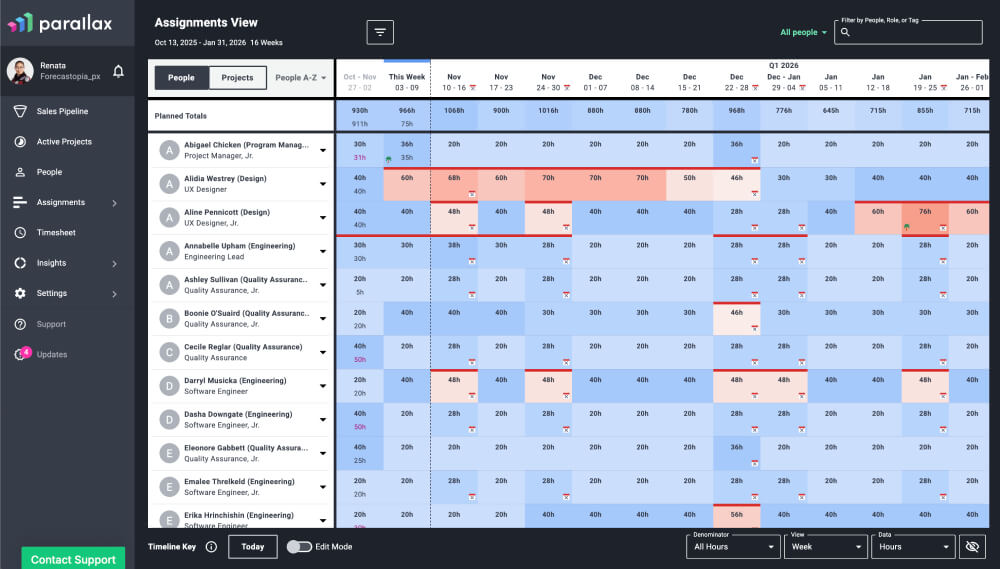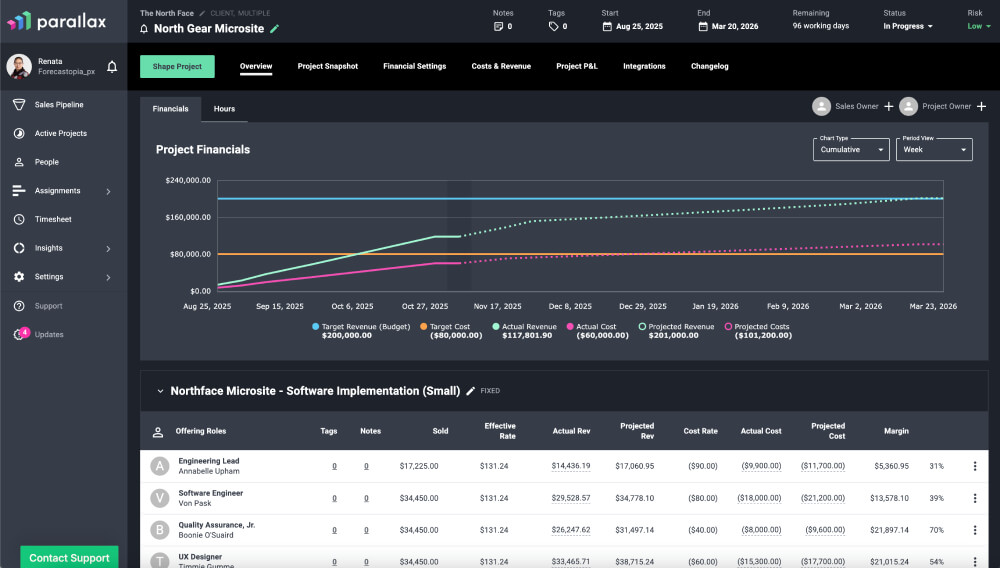Clarity Around Capacity & Hiring
You shouldn’t have to guess when it’s time to hire or shift your team.
We can help bring clarity to capacity planning by showing you exactly where your team is overextended or underutilized. Instead of relying on gut feel or spreadsheets, you’ll make proactive decisions backed by real data. The result? Smarter hiring, better staffing, and fewer surprises down the line.






